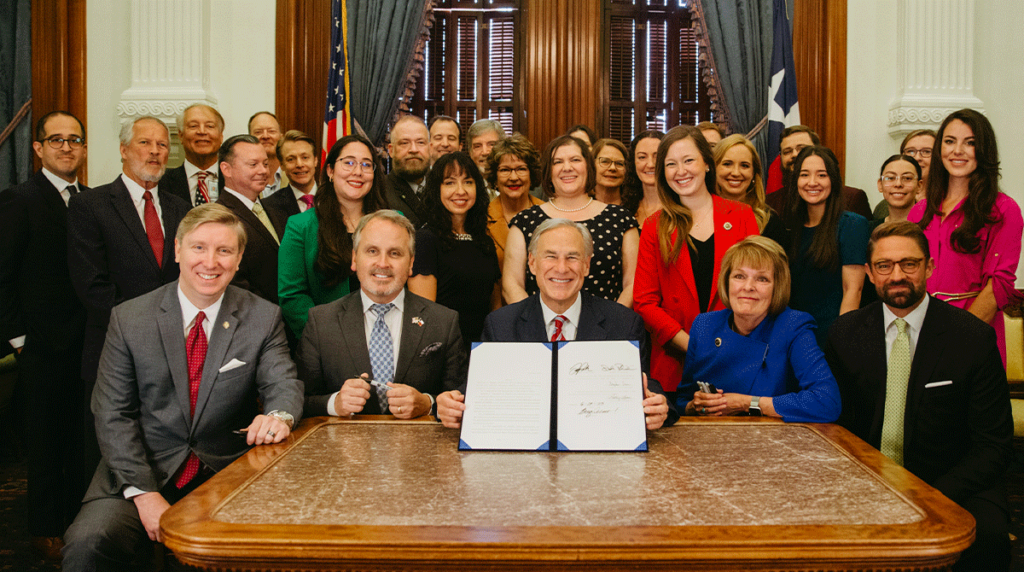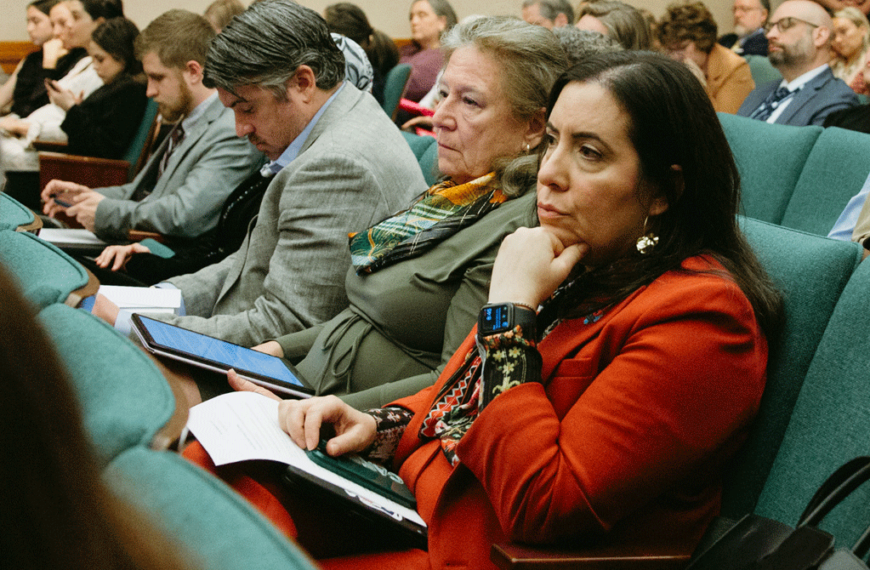On one of the most sensitive hospital issues – end-of-life care and do-not-attempt-resuscitation (DNAR) orders – hospitals, doctors, clergy and right-to-life groups finally, for the first time in forever, came together.
The result – after eight months of negotiations before and during the Texas Legislature’s 2023 regular session – is a new law that clears up possible confusion, enhances patient rights in the state’s dispute resolution process for deciding whether care is medically appropriate, and protects health care workers in the position of providing care to patients in their final days and hours.

House Bill 3162 was one of the Texas Hospital Association’s biggest achievements of this session, in part adding clarity and codified common sense to a 2017 law that left health care workers confused and apprehensive about undertaking the DNAR process. The new, wide-ranging update to the Texas Advance Directives Act (TADA) is the first time in 20 years that all involved advocacy organizations came to the table and had a say, says Robert Fine, MD, clinical director of clinical ethics and palliative care at Baylor Scott & White Health.
Ticking off each legislative year since 2003, Dr. Fine says, “we could never get together. … I used to joke that I need somebody to be on the other side of the table that’s willing to negotiate and have a give-and-take. And as you know, we weren’t really getting that. We got that this year.”
A ‘very fearful’ situation
The 2017 law, Senate Bill 11, was the first-ever regulation of in-hospital DNAR orders in Texas. It introduced a somewhat brain-twisting web of requirements for a DNAR order to be valid, including outlining certain situations where physicians had to obtain qualified witnesses to the advance directive, while in other situations they did not. The law also introduced criminal and civil liability for physicians and other health care workers – including a criminal misdemeanor – for, among other actions, intentionally cancelling or effectuating someone’s DNAR order in violation of the law.
Tommie Farrell, MD, of Hendrick Health in Abilene, believes the intent of SB 11 all along was “to allow less DNAR orders to go in place.” He says physicians were already apprehensive about DNAR situations to begin with.
“My experience as a palliative care doctor working with the hospitalists, internal medicine doctors and the primary care doctors is most of them are very fearful,” Dr. Farrell said. “They don’t want to put orders in until they talk to their patients. Even if sometimes as a consultant I hear from the family they want [there] to be a DNAR, sometimes the ones who’ve had a longtime relationship with their patients are like, ‘Well, wait, let me check with them first, too.’
“Senate Bill 11 was very confusing to people, because one, it was a change, and two … the patient talking to you and telling you that they want to be a do-not-resuscitate requires you to go get witnesses, vs. when the legal surrogate says that they want the patient to be a do-not-resuscitate, you do not have to do the same criteria.”
Dr. Fine cited recent research from UT San Antonio that showed a drop in DNAR orders in that system following the passage of SB 11 – meaning more inappropriate, non-beneficial CPR attempts, he says.
“And the only plausible explanation … was [that] the safest thing under the 2017 law, for a doctor to do, was to just leave patients full code. Then they could not be at any risk of any criminal penalties.”
The key fixes on DNAR
HB 3162, authored by Rep. Stephanie Klick (R-Fort Worth), offers important specificity and allows physicians and health care workers doing their job in good faith to breathe easier. THA worked on the bill along with the Texas Medical Association, Texas Right to Life, Texas Alliance for Life and the Texas Catholic Conference of Bishops.
It provides criminal and civil liability protection to physicians, and those acting under their direction, for participating in medical procedures under the law’s DNAR process. An exception to that protection exists for those who act with specific malicious intent to cause the patient’s death, along with related criteria.

“I wish the penalties weren’t there at all,” Dr. Fine said. “But I think protections written in were so strong, it would be hard for anybody to prosecute a doctor over a DNAR order. And I don’t think any hospitals wants their doctors prosecuted.”
Additionally, HB 3162 includes several clarifications, such as that an out-of-hospital DNAR may be used as the basis for an in-hospital one; allows any physician providing direct care to the patient to issue a DNAR order in compliance with certain directions from the patient or the patient’s medical decision-maker; and clarifies that for certain DNARs that may only be issued by an attending physician if the patient’s death is “imminent,” that word is defined as “within minutes to hours.”
It also includes new language on who can revoke a DNAR order, which Dr. Farrell says was something that has needed fixing. In the past, he says, “the people who requests the do-not-resuscitate order couldn’t necessarily be the same people that is allowed to rescind the order.”
“With the new law, if I have a patient that tells me themselves that they want to be do-not-resuscitate, and I’ve done the witness process and we know it’s in there … according to the way they tried to write [HB 3162], if a family member shows up after they’ve gone unconscious and says, ‘No no no no, we want to change it,’ I am now able to say we keep to the patient’s originally documented wishes. We go off [a] hierarchy; the only people that can change someone’s do-not-resuscitate status has to be someone at the appropriate level above that.
“So it’d have to be a medical power of attorney specifically coming by and saying they were changing it based off this conversation with the patient or this knowledge of the patient.”
More information on HB 3162 is available in THA’s explainer on the new law. THA has also recorded a webinar on the changes in the law, available here, that offers both CLE and CME credits.
Care disputes: Longer notice and transfer times
The state’s process to resolve disputes over a patient’s care, also contained in TADA, was a major focus of HB 3162.
If a patient’s medical team has a disagreement over the appropriateness of life-sustaining treatment with a patient or the patient’s medical decision-maker – such as a family member – then the hospital’s medical ethics committee may meet to hear from both sides. If the ethics committee agrees with the medical care team that life-sustaining treatment isn’t medically appropriate, then the law prescribes a set number of days for the facility to find a transfer destination for the patient before it can legally withdraw the treatment.
Some of the most impactful changes in the law assure patients and their families greater timelines on both sides of that process. HB 3162 extends the period for notice to a patient or patient’s representative prior to an ethics committee meeting to seven days, instead of the 48-hour notice in current law. If the ethics committee finds that the intervention is medically inappropriate, the facility will now be required to spend up to 25 additional days attempting to transfer the patient, instead of the current 10 days.
In addition, HB 3162 clarifies that the dispute resolution process applies only to treatment decisions for patients deemed incompetent or incommunicative. That’s always been self-evident to Dr. Fine, but he says codifying it was a useful step.
“For example, we’ve always believed this process should only be applied to a terminally or irreversibly ill patient who is not able to communicate themselves. With a communicative patient, you don’t walk into their room, when they’re completely alert and with it, and say, ‘We’re going to stop treatment in 10 days or 25 days.’
“In other words, we’ve always believed that anyway. The law now clarifies that that’s the standard. So that to me is a good change.”
After the 2017 process that led to passage of SB 11, stakeholders in the midst of HB 3162 came away feeling much better not only about the result, but also a process in which the table had seats for everyone.
“Certainly from an organized medicine point of view, I’d say that we physicians really appreciate the support that hospitals gave us on this issue,” Dr. Fine said. “So I’m pretty darned pleased with the law.”
Related articles from The Scope
2025 Newsmakers in Texas Hospitals
Sponsored by Envision Healthcare, THA’s Newsmakers are hospital executives and…
THA’s 2025 Session in Review: Outcomes for Texas Hospitals
Medicaid talks in Washington, D.C., measles in West Texas and…
In a Unique Session, THA Survives and Thrives
There’s never been a legislative session quite like this one.…
2025 Legislative Session Recap: A Successful Juggling Act
Following the 2025 Texas Legislature’s adjournment sine die, Texas hospitals…
Accepting Nominations for THA’s Boards, Councils and Committees
Now through July 3, members can nominate Texas hospital leaders…
Congress Should Be Careful With Medicaid. Lives Are at Stake.
Since talk of a major congressional budget package began several…








